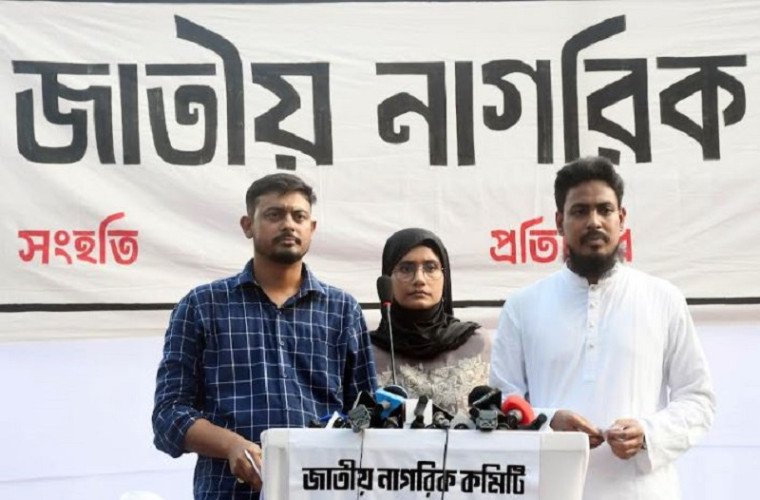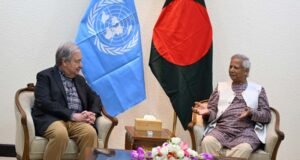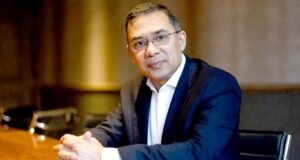
The Jatiya Nagorik Committee, formed during the July-August student-led mass upsurge, has been reorganised to widen its efforts towards abolishing the fascist system and implementing a new political framework.
This move also aims to uphold the spirit of the July-August uprising, which continues to inspire the committee’s initiatives.
The committee has announced the following office-bearers in its new structure:
Convener: Nasiruddin Patwary
Joint Conveners:
1. Ariful Islam Adib
2. Ali Ahsan Junayed
3. Monira Sharmin
4. Sarwar Tushar
5. Manzur-Al-Matin
6. Dr Tasnim Jara
7. Dr Atiq Mujahid
8. Ashraf Uddin Mahdi
Member Secretary: Akhtar Hossain
Joint Member Secretaries:
1. Abdullah Al-Amin
2. SM Saif Mostafiz
3. Rafe Salman Rifat
4. Anik Roy
5. Nahida Sarwar Chowdhury
6. Alik Mridha
7. Mahbub Alam
8. Dr Mahmuda Mitu
Spokesperson: Samanta Sharmin
Deputy Spokespersons:
1. Saleh Uddin Sifat
2. Mushfiq Us Saleheen
3. Arefeen Mohammad Hijbul
4. Tahsin Riyaz
5. Mohammad Miraj Mia
Chief Organiser: Sarjis Alam
Deputy Chief Organisers:
1. Md Nizam Uddin
2. Akram Hossain CF
3. SM Shahriar
4. Mohammad Ataullah
Organisers:
Moshiur Rahman
Faisal Mahmud Shanto
Hasan Ali
Sagufa Bushra Mishma
Mesbah Kamal Munna
Pritom Das
Mazharul Islam Fakir
Tanzil Mahmud
Saifullah Haider
Nayeem Ahmad
Abu Said Leon
Sakib Mahdi
Zobayerul Hasan Arif
Ali Naser Khan
The committee says that the names of organisers are not listed in order of seniority.
The remaining central members of the committee will continue their roles as ‘Central Members’ in the newly restructured organisation.
This restructuring signifies the committee’s commitment to intensifying its activities and mobilising public support for a transformative political agenda.
It aims to bring together a wide range of citizens to create a united front against oppressive systems while paving the way for progressive and inclusive governance.
 Weekly Bangla Mirror | Bangla Mirror, Bangladeshi news in UK, bangla mirror news
Weekly Bangla Mirror | Bangla Mirror, Bangladeshi news in UK, bangla mirror news







